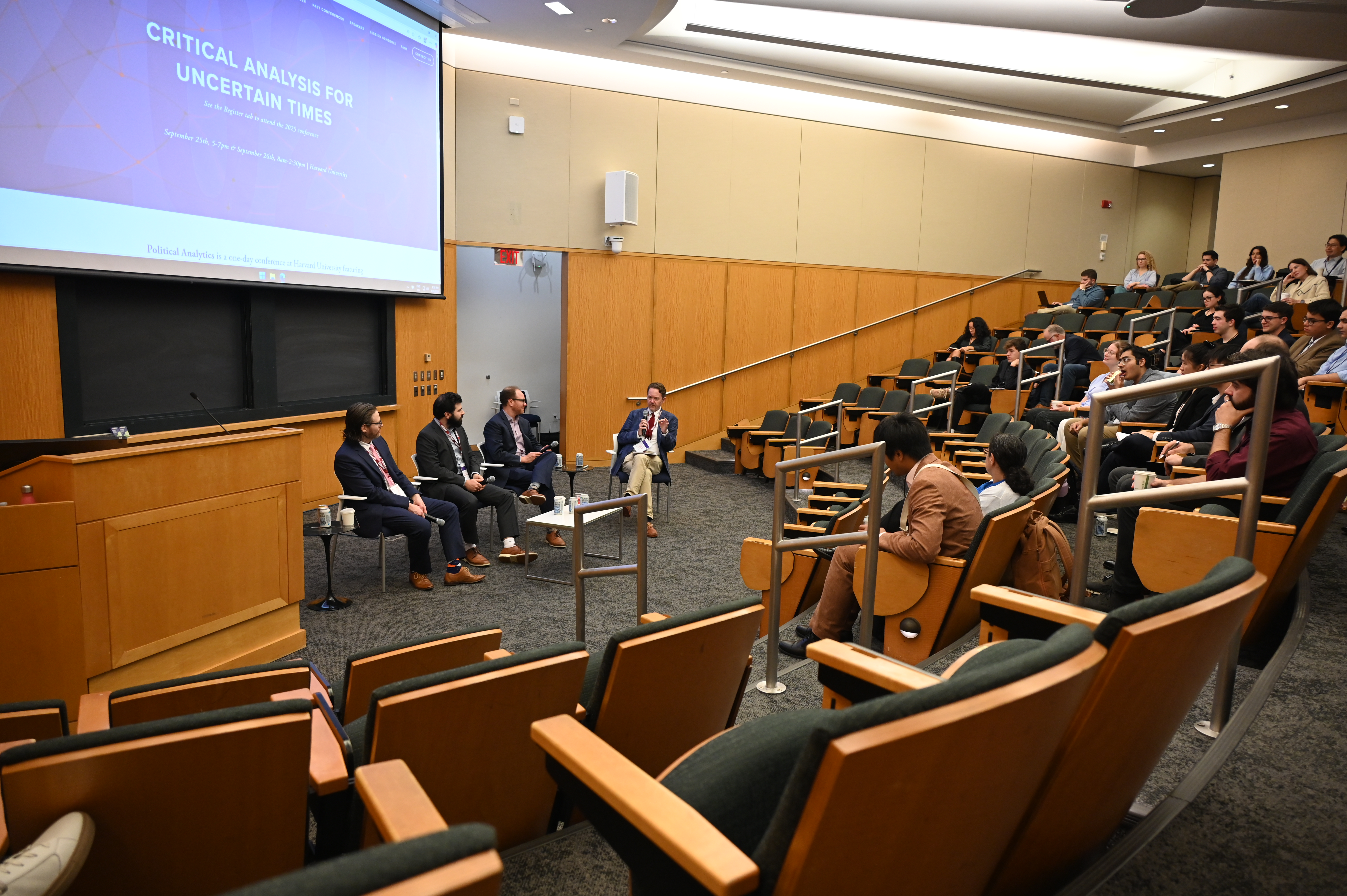Media & Writing
Public Writing and Research Coverage
Selected commentary and coverage of Andrew Reeves’s work on presidential power, disaster politics, and democratic accountability.
Featured Panel
Andrew Reeves moderates the Election Analyst Panel at Political Analytics 2025 at Harvard University, featuring Dave Wasserman, Jacob Rubashkin, and Geoffrey Skelley.
Recent Commentary
Essays and op-eds on presidential power, disaster politics, and electoral accountability.
- Trump treats laws as obstacles, not limits − and the only real check on his rule-breaking can come from political pressure
- Biden and Trump will talk big at the debate, but how much could either really do?
- Biden’s Supreme Court commission probably won’t sway public opinion
- This pandemic is a test for leaders. Voters do the grading
- If Trump took responsibility for coronavirus missteps, it might actually help him
- Donald Trump’s lukewarm response to Puerto Rico was pretty predictable. Here’s why
- Florida Disaster Aid Can Help Bush
- Plucking Votes From Disasters
Selected Research in the Media
- Swing-State Politics Is Rotting Our Brains and Harming Democracy
- Trump seeks to boost presidential bid in Hurricane Helene’s wake, analysts say
- Columbia’s political-social climate heavily influenced by University of Missouri
- Checking the American Presidency
- Perception matters: How fear about crime impacts presidential approval
- How local and national leaders are tested by major natural disasters
- Biden Surveys Hurricane Damage in Florida Amid Tension With Governor
- Devastating Tornadoes Give Biden One Last Chance to Bridge Red-Blue Rift
- Partisanship, the economy, and presidential accountability
- Texas’s Disaster Is Over. The Fallout Is Just Beginning
- The Economy is Collapsing. So Are Trump’s Reelection Chances
- The divide between us: Urban-rural political differences rooted in geography
- Counties that voted for the president get more in disaster relief
- Disaster Politics Can Get In The Way Of Disaster Preparedness
- Good to Know: What is sociotropic voting in politics?
- Do presidents really reward the states that voted them into office?
- How Hurricane Sandy Could Matter on Election Day
